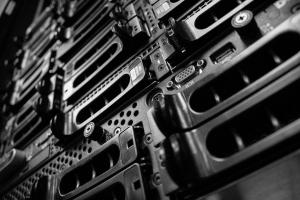Microsoft announces successful test of new hydrogen fuel cell system
 Microsoft has announced that it has successfully tested a hydrogen fuel cell system to potentially replace the diesel backup generators used to keep its data centres online. The fuel cell system has a capacity of 3MW and is designed to reduce carbon dioxide emissions by eliminating the use of diesel fuel.
Microsoft has announced that it has successfully tested a hydrogen fuel cell system to potentially replace the diesel backup generators used to keep its data centres online. The fuel cell system has a capacity of 3MW and is designed to reduce carbon dioxide emissions by eliminating the use of diesel fuel.
A statement from Microsoft said that the three-megawatt hydrogen fuel cell system had been put through the tests that Microsoft uses to qualify diesel generators to prove it could function reliably, including simulated power outages and hours-long runs.
According to Microsoft, this is the first time that a hydrogen fuel cell system has been demonstrated to operate at the same scale as a typical backup generator used at a data centre.
Mark Monroe, a principal infrastructure engineer on Microsoft’s team for data centre advanced development, commented on the news: “This is a continuation of the journey that we started back in 2018. And in 2020, when we announced the work that we're doing on the smaller tests, we alluded to the fact that we were going to run a three-megawatt test sometime in the future. The future is now.”
"Three megawatts is super interesting because that's the size of the diesel generators that we use right now," Microsoft's chief environmental officer Lucas Joppa added.
The trialling of the fuel cell systems is in line with Microsoft’s commitment to eliminate diesel fuel usage as part of its pledge to become a carbon-negative organisation by 2030. To meet this goal, the company has already carried out tests of alternative energy sources, including previous experiments with hydrogen fuel cells.
Other data centre operators experimenting with fuel cell technology include Dutch company NorthC, which earlier in the year announced that it was planning a production deployment at its Groningen facility. However, this had an output of only 500kW, and was fuelled by hydrogen created using renewable energy.







